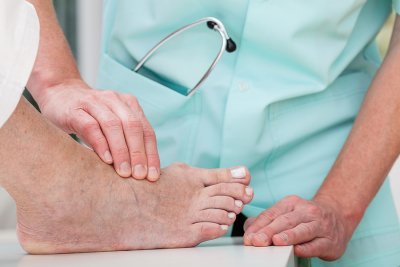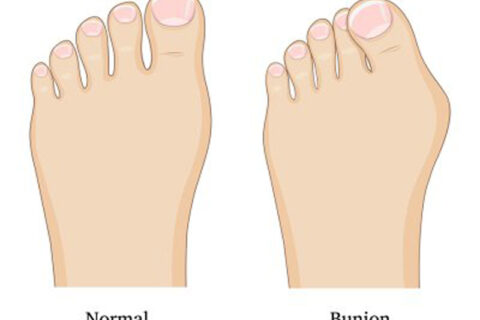What to Expect From Bunion Surgery

Bunions are small bumps comprised of bone and soft tissue that develop on the feet, often due to improperly-fitted or constrictive footwear. A bunion will often cause pain and may lead to even trouble walking over time. If your podiatrist has suggested surgery to address a bunion and the pain it causes, take a look below to find out what to expect from this procedure.
Evaluation
Before your procedure, your surgeon will complete a full evaluation of your symptoms, foot health, and general health. You will be asked questions about your medical history and any current medical conditions. An evaluation also includes a physical examination; X-rays may be taken to provide your surgeon with more information. After he is through, you surgeon will explain the type of procedure he believes is best for you.
Preparation
Before surgery, your doctor may request additional information or tests such as X-rays, blood samples, or a cardiogram. He will discuss your current medications and how they might be affected by surgery. You may be given special instructions, such as to avoid eating for a few hours before surgery.
Surgery
Bunion surgery is usually performed with local anesthesia, meaning you will be awake but unable to feel sensations in the affected foot. The surgical procedure takes approximately one hour, after which you will recover for one to two hours before you can return home.
Recovery
After surgery, follow your doctor’s instructions carefully. You may be given a special shoe or a cast to keep your toe aligned as it heals. Your doctor may also provide crutches, a walker, or a cane for use immediately after surgery. Physical therapy may be recommended to help build strength and flexibility in your foot as you recover.
Although most bunions respond well to other treatments, some require surgery to eliminate pain and restore quality of life. The podiatrists at Advanced Foot & Ankle Specialists of Sugar Land offer surgical and non-surgical treatment of bunions, hammertoes, ingrown toenails, and more. Please visit us on the web or call us today at 281-242-3338 to explore your treatment options.

